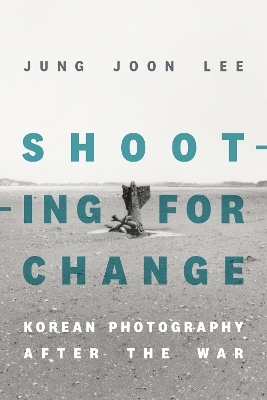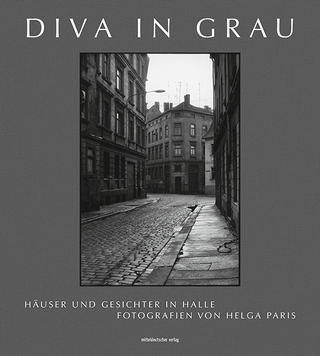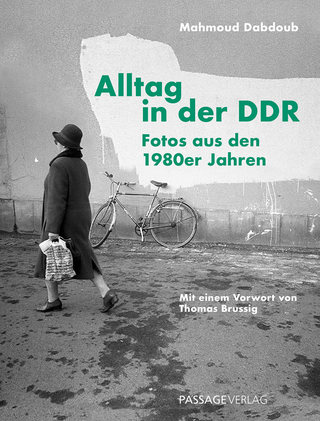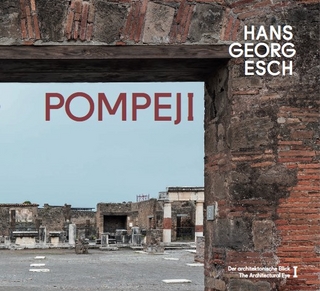
Shooting for Change
Korean Photography after the War
Seiten
2024
Duke University Press (Verlag)
978-1-4780-2599-3 (ISBN)
Duke University Press (Verlag)
978-1-4780-2599-3 (ISBN)
Jung Joon Lee examines postwar Korean photography across multiple genres and practices, showing how the practice of photography is central to shaping memory of historical events, representing the ideal national family, and motivating social movements.
In Shooting for Change, Jung Joon Lee examines postwar Korean photography across multiple genres and practices, including vernacular, art, documentary, and archival photography. Tracing the history of Korean photography while considering what is disguised or lost by framing the history of photography through nationhood, Lee considers the role of photography in shaping memory of historical events, representing the ideal national family, and motivating social movements. Further, through an investigation of what it means to practice photography under the normalized conditions of militarism, Lee treats the transnational militarism of Korea as a lens through which to probe the officially and culturally sanctioned readings of images when returning to them at different times. Among other themes, Lee draws on photography of militarized sex work, political protest in the military era, war orphans, and mass protests. Ultimately, Lee treats the formative periods in nation building and transnational militarization as both backdrops and cultivators for photographic works.
In Shooting for Change, Jung Joon Lee examines postwar Korean photography across multiple genres and practices, including vernacular, art, documentary, and archival photography. Tracing the history of Korean photography while considering what is disguised or lost by framing the history of photography through nationhood, Lee considers the role of photography in shaping memory of historical events, representing the ideal national family, and motivating social movements. Further, through an investigation of what it means to practice photography under the normalized conditions of militarism, Lee treats the transnational militarism of Korea as a lens through which to probe the officially and culturally sanctioned readings of images when returning to them at different times. Among other themes, Lee draws on photography of militarized sex work, political protest in the military era, war orphans, and mass protests. Ultimately, Lee treats the formative periods in nation building and transnational militarization as both backdrops and cultivators for photographic works.
Jung Joon Lee is Associate Professor of Theory and History of Art and Design at Rhode Island School of Design.
List of Illustrations ix
Note on Transliteration xv
Acknowledgments xvii
Introduction. The Time of Korean Photography: Notes on National Photography and Temporality 1
Part I. Family Catachrony
1. War and the Image of an Orphan Nation 29
2. The Place of Women in Family Photography 51
Part II. Performing Multitemporality
3. Shooting Social Movements 89
4. The Photo Public in the Kwangjang 114
Part III. Sensing Borderlands
5. The DMZ, Camptowns, and the Theatre of Repetition 137
6. Listening to Camptown Photographs 164
Notes 195
Bibliography 245
Index 265
| Erscheinungsdatum | 07.03.2024 |
|---|---|
| Zusatzinfo | 74 illustrations, including 30 in color |
| Verlagsort | North Carolina |
| Sprache | englisch |
| Maße | 152 x 229 mm |
| Gewicht | 522 g |
| Themenwelt | Kunst / Musik / Theater ► Fotokunst |
| Kunst / Musik / Theater ► Kunstgeschichte / Kunststile | |
| Sozialwissenschaften ► Ethnologie | |
| Sozialwissenschaften ► Soziologie | |
| ISBN-10 | 1-4780-2599-9 / 1478025999 |
| ISBN-13 | 978-1-4780-2599-3 / 9781478025993 |
| Zustand | Neuware |
| Informationen gemäß Produktsicherheitsverordnung (GPSR) | |
| Haben Sie eine Frage zum Produkt? |
Mehr entdecken
aus dem Bereich
aus dem Bereich
Fotos aus den 1980er Jahren von Mahmoud Dabdoub
Buch | Hardcover (2024)
Passage-Verlag
24,50 €
der architektonische Blick : the architectural eye
Buch | Hardcover (2024)
König, Walther (Verlag)
38,00 €


